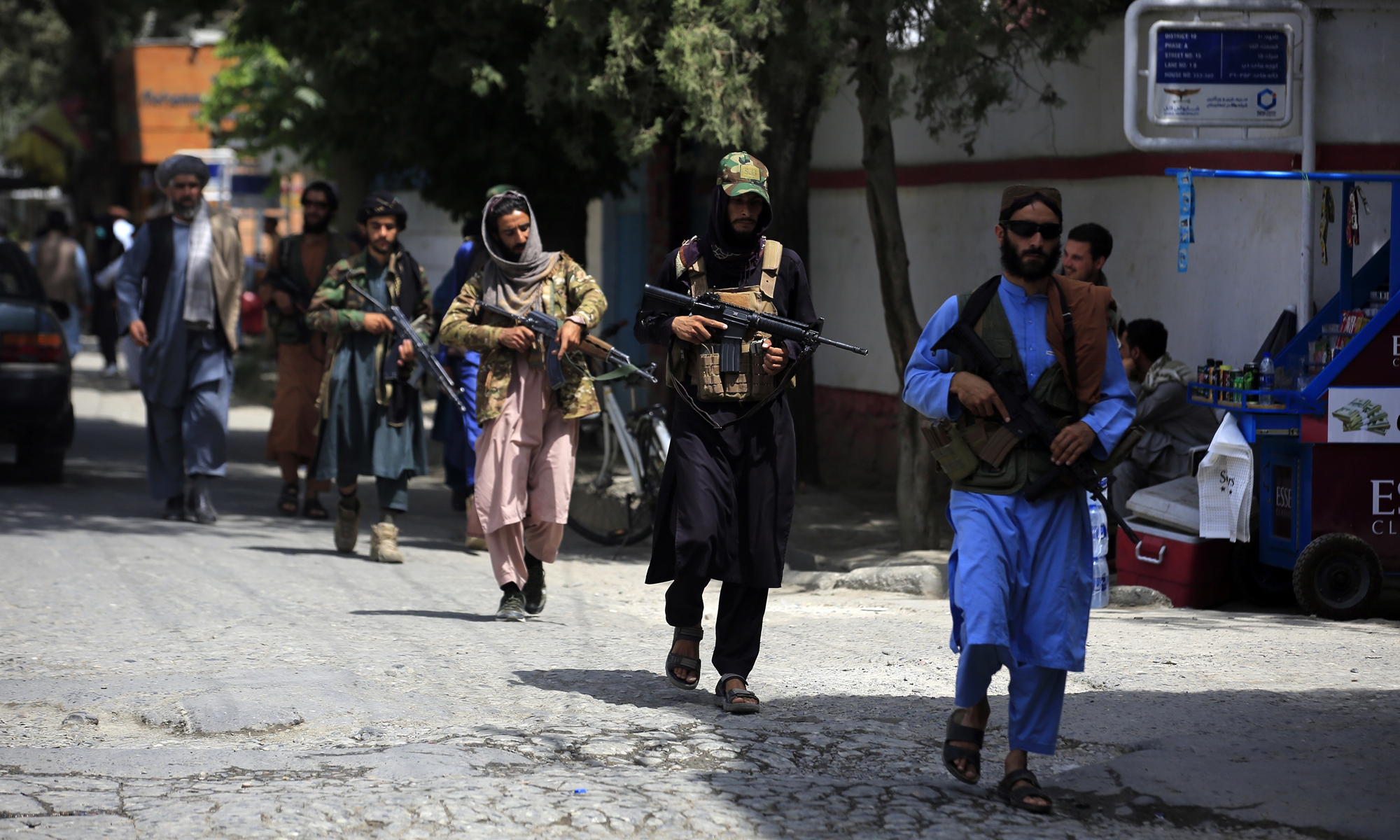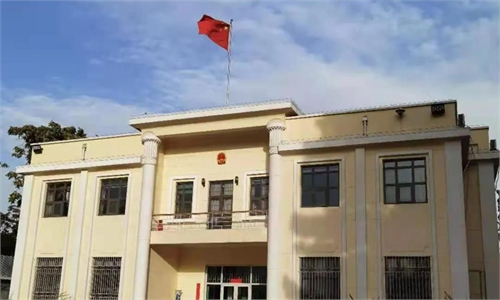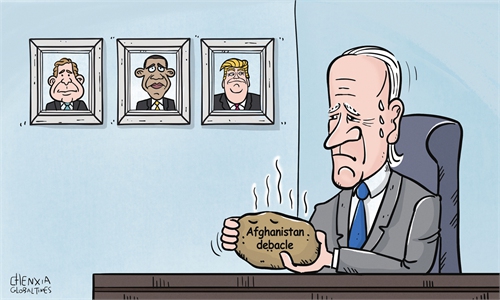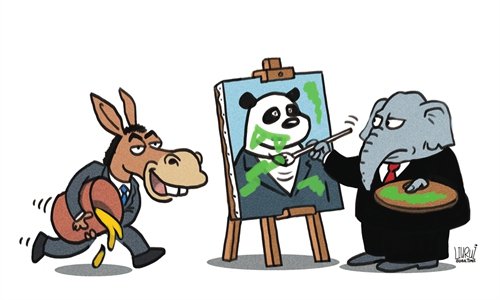China, Pakistan enhance coordination on Afghan issues, while India struggles to take stake

Taliban fighters patrol in the Wazir Akbar Khan neighborhood in the city of Kabul, Afghanistan on Wednesday. The Taliban declared an "amnesty" across Afghanistan and urged women to join their government Tuesday, seeking to convince a wary population that they have changed. Photo: IC
China and Pakistan are enhancing communication and coordination on Afghan issues as two important neighbors of Afghanistan, and expect to play constructive roles in maintaining regional peace and stability, which has triggered India's anxiety. India has been unwilling to make a U-turn in its policies after a prolonged hostility toward the Afghan Taliban.
Chinese State Councilor and Foreign Minister Wang Yi said China and Pakistan need to coordinate to support a stable transition in Afghanistan, during his late Wednesday phone call with Pakistani Foreign Minister Shah Mahmood Qureshi.
Wang said the so-called democratic transformation proved unrealistic, which only brought about hurtful consequences, and lessons from it are worth remembering and learning.
China and Pakistan need to play constructive roles in maintaining regional peace and stability, Wang said, offering suggestions including encouraging all Afghan parties to strengthen solidarity and establish a broad-based and inclusive political structure, and supporting Afghanistan in its fight against terrorism.
Qureshi said all parties should support the Taliban to implement its commitment and protect the rights and interests of the Afghan people.
China and Pakistan share similar stances and interests on the Afghan issues, hoping Afghanistan can restore stability soon and set up an inclusive political structure that is broadly representative, Qian Feng, director of the research department at the National Strategy Institute at Tsinghua University, told the Global Times on Thursday, noting China and Pakistan also hope the Taliban-led government will fulfill pledges of cracking down on terrorism and embark on reconstruction.
The all-weather strategic cooperative partnership between China and Pakistan enabled the two countries to act in coordination on the Afghan situation, bringing about positive changes to the region, Qian said.
The changing Afghan situation triggered anxiety from India, which had followed the US closely and cooperated in depth with the Kabul government and has long been hostile to the Taliban.
Taliban spokesperson Muhammed Suhail Shaheen told media earlier that if India comes to Afghanistan militarily and has presence there, that will not be good for them. But he also appreciated India's financial and infrastructure aid that has helped the Afghan people.
India's past strategy has pushed itself into embarrassment. It cannot make a U-turn in its Afghan policies, neither can it cast aside geopolitical influence of the US and its Western allies, Qian said.
Lan Jianxue, head of the Department for Asia-Pacific Studies at China Institute of International Studies, noted India was a chess piece of US strategy in the region but lacking diplomatic independence to some extent jeopardized India from keeping influence in the region.
There are barriers for India to cooperate with other regional countries, Lan said.
The US, Russia, China and Pakistan are four countries that have stronger influence on Afghan issues and they have a mechanism to push forward peaceful transition, the "Troika Plus."
Given the tense relations between Pakistan and India, the major powers will be cautious to have India get involved in the Afghan issue, Lan said.
Both Qian and Lan mentioned India has been adjusting its policies and restoring contact with the Taliban.
If the new Afghan government can guarantee India's interests in Afghanistan, New Delhi may continue to play a certain role on Afghan reconstruction and economic development, Lan said.



